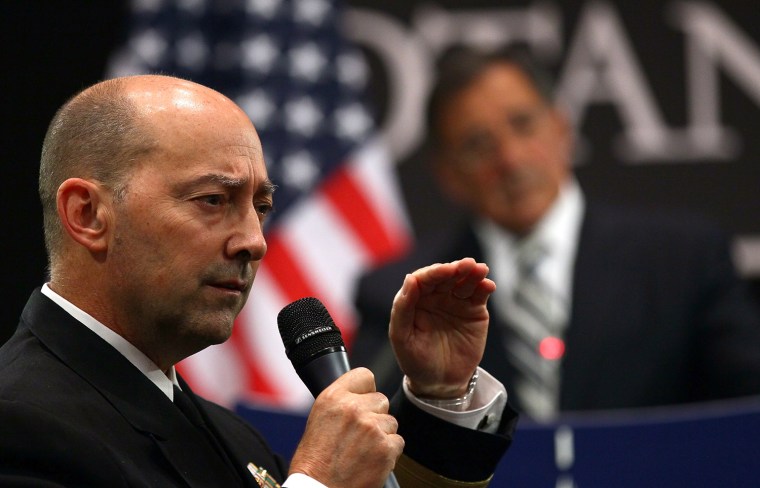Spies opened a bogus Facebook account for U.S. Adm. James Stavridis, NATO's supreme allied commander, and tricked senior British officers and defense officials into "friending" it, allowing access to private email addresses, phone numbers and photos, the Sunday Telegraph newspaper reported on its website.
The Observer newspaper said there had been multiple such attacks aimed at Stavridis, and the Sunday Telegraph said military officers and diplomats were told the evidence pointed to "state-sponsored individuals in China."
Stavridis was in charge of operations in Libya to end Moammar Gadhafi's regime and leads American forces in Europe.
The Telegraph said NATO had advised senior officers and officials to open their own social networking accounts to prevent a repeat. The Telegraph said Stavridis now has an official Facebook account and the bogus one has been deleted.
The Telegraph said that while genuine military secrets were unlikely to have been stolen, the incident was an embarrassment. And the paper pointed out that personal details that the officers who were tricked posted on Facebook could be a trove for intelligence agents.
The incident occurred late last year, the newspaper said, and NATO officials had confirmed the incident on Saturday. The NATO officials would not comment on the source of the attacks.
Read the full report in the Sunday Telegraph
But concerns are growing about Chinese cyberwarfare. A report delivered to Congress said China's cyberwarfare would pose a genuine risk to the U.S. military in a conflict, for instance over Taiwan or disputes in the South China Sea.
Operations against computer networks have become fundamental to Beijing's military and national development strategies over the past decade, said the 136-page analysis by Northrop Grumman Corp. It was released on Thursday by the congressionally created U.S.-China Economic and Security Review Commission.
The report, based on publicly available information, said Chinese commercial firms, bolstered by foreign partners, are giving the military access to cutting-edge research and technology.
The military's close ties to large Chinese telecommunications firms create a path for state-sponsored penetrations of supply networks for electronics used by the U.S. military, government and private industry, the report added.
That has the potential to cause a "catastrophic failure of systems and networks supporting critical infrastructure for national security or public safety," according to the study.
Deputy Defense Secretary Ashton Carter, without referring to the report, said Thursday that he was not even "remotely satisfied" with U.S. ability to deal with cyberwarfare.
This article includes reporting by msnbc.com staff and Reuters.
More from msnbc.com and NBC News:
- Iraqi teens stoned to death for wearing 'emo' clothes
- Worst Gaza flare-up in months kills 14, Palestinians say
- Slimy but tasty seaweed returns to Japan
Dominique Strauss-Kahn flees student protesters - As quick as a tsunami: Chinese pre-fab homes
Follow us on Twitter: @msnbc_world
